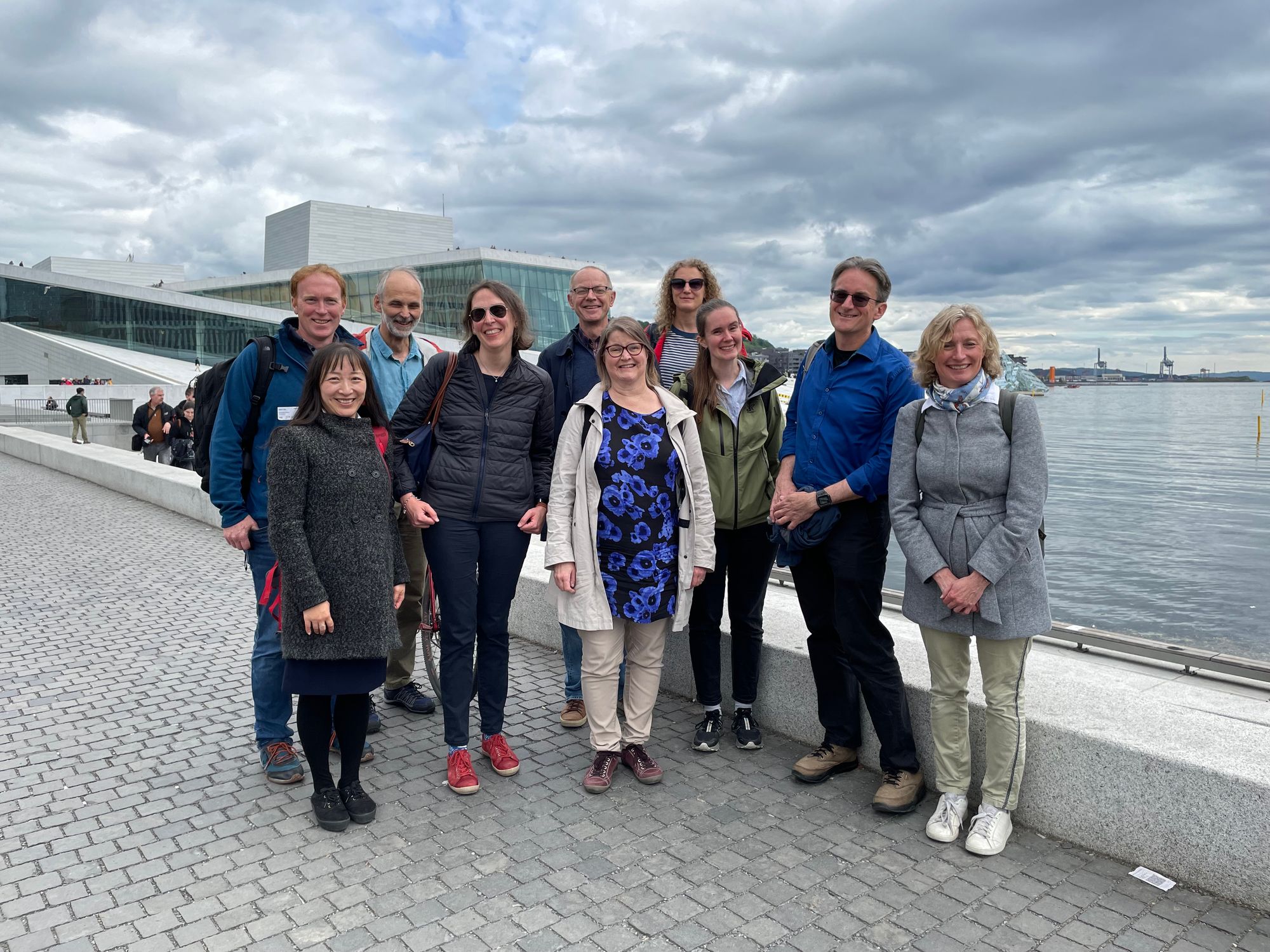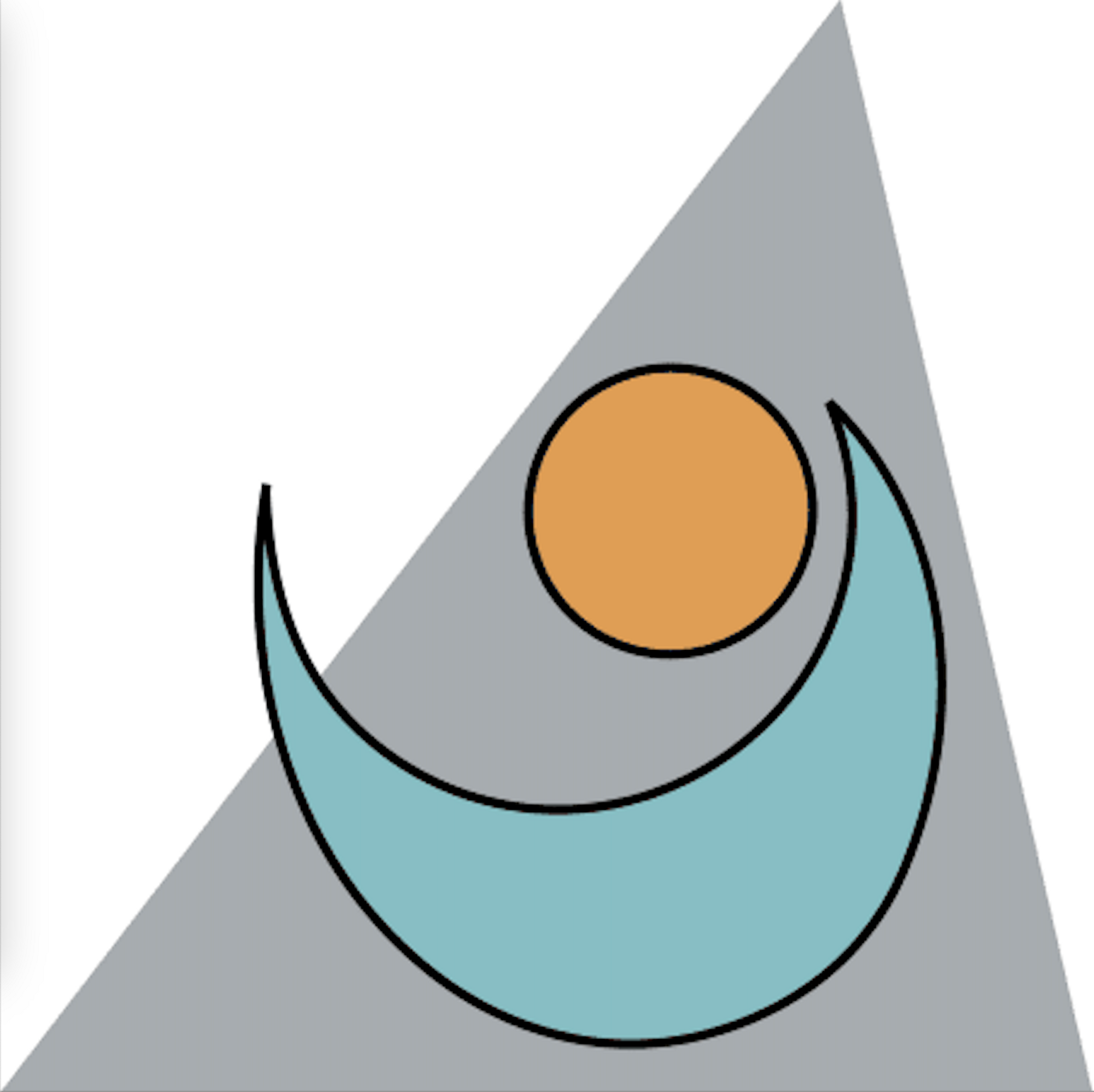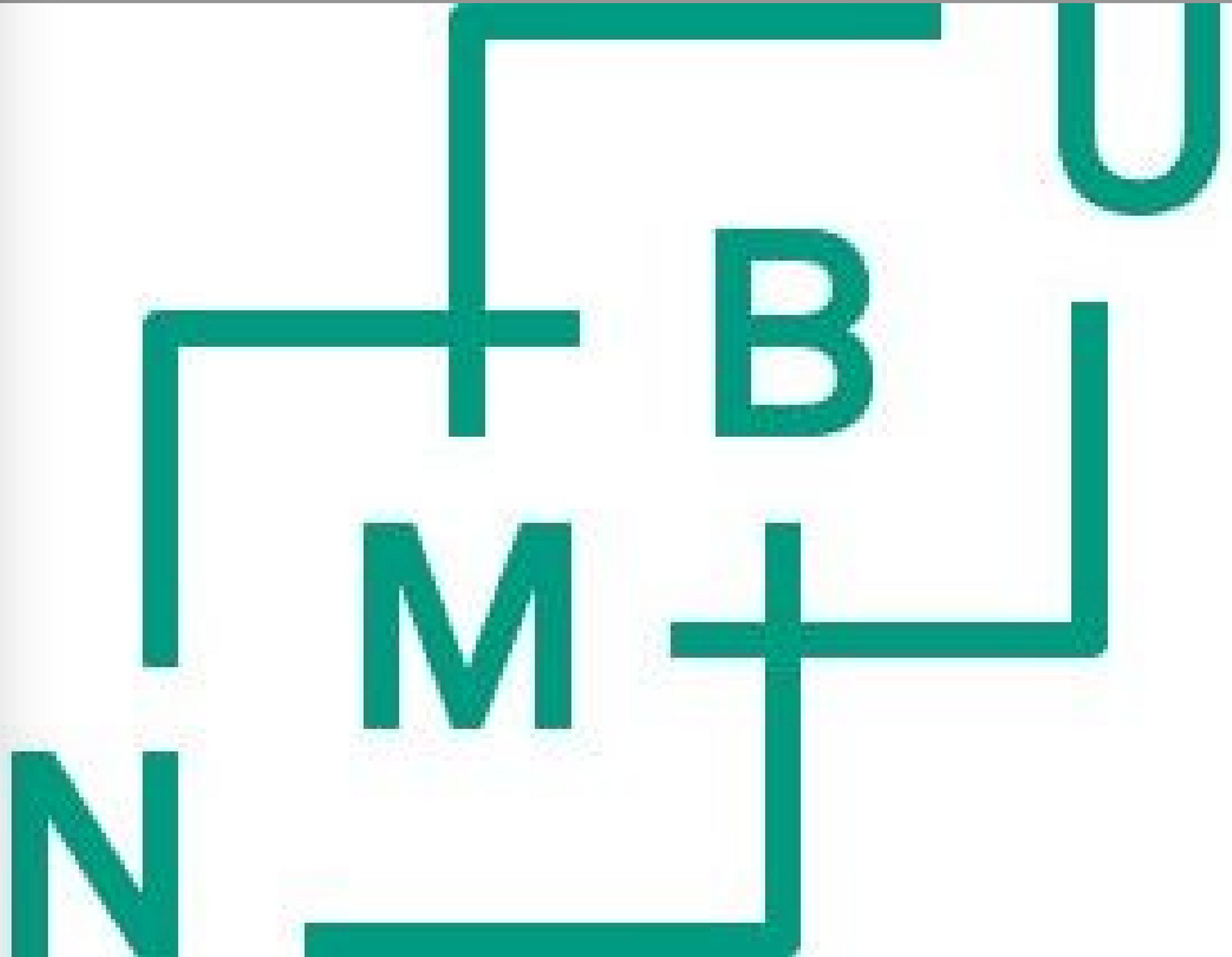MARine Ecosystem Accounting (MAREA) for integrated coastal planning in the Oslofjord
How mapping and valuation of ecosystem services can help turn the tide on ecosystem degradation of urbanizing coastal areas.
News about the project
MAREA International Collaboration
Indonesian government delegation visited NIVA
Since 2023, NIVA has been collaborating with Statistics Norway on the Ocean for Development Indonesia: Ocean Ecosystem Accounting project, funded by NORAD. The project aims to support the Indonesian government in developing ocean ecosystem accounts for the Savu Sea Marine Protected Areas (MPAs). The NFR-funded MAREA project (Marine Ecosystem Accounting for the Integrated Plan of the Oslofjord) serves as the primary research initiative for experience-sharing between the two countries.
On September 10, 2024, a delegation from the Indonesian government visited NIVA’s Oslo office. NIVA Research Director Marianne Olsen delivered a welcome address on behalf of the organization’s leadership. The visit featured presentations from NIVA experts, including:
· Dr. Trine Bekkby, Senior Researcher, on "Seagrass in Norway: Status, Threats, Mapping, Monitoring, and Restoration."
· Dr. Kasper Hanker, Senior Researcher, on "Blue Forests in Norway: Carbon Storage, Sequestration, and Applied Methods."
The meeting was attended by Research Manager Paul Berg and Research Assistant Ragnhild R. G. Torstensen from the Marine Biology Section, and was moderated by Dr. Wenting Chen.
In the afternoon, the delegation visited NIVA’s Solbergstrand laboratory, where they explored various research facilities, including the ballast water station, hard-bottom basins, indoor seaweed cultivation facilities, fish tanks, and wastewater algae basins.
“The Indonesian government representatives were highly impressed and expressed great interest in our work, particularly in ecosystem mapping, ecosystem services valuation, and the application of this knowledge to support coastal spatial planning.”, says Dr. Wenting Chen.
Story from Styrker internasjonalt samarbeid.

5th Global Dialogue on Sustainable Ocean Development (Bali, Indonesia)
On behalf of the MAREA team, Research Manager Paul Berg and Senior Researcher Wenting Chen from NIVA presented the Oslofjord condition and extent account, along with the project concept, at a side event of the 5th Global Dialogue on Sustainable Ocean Development. The event was co-convened by the INECO project, a capacity building project focused on ecosystem accounting in India.

Advisory board meeting
MAREA's advisory board meeting was held both on Microsoft Teams and at NIVA's offices in Oslo on 11 June 2024. The meeting was attended by around 20 participants from both research and administration, with visits from Ireland, the UK, South Korea and Canada. The meeting was an important opportunity to share knowledge and reflect on the work carried out both related to the project and to experiences in ecosystem accounting internationally.
The day started with an introduction from project manager Wenting Chen with an overview of the project, followed by presentations on the Oslofjord and results from MAREA so far:
- Haakon Thaulow (former director of NIVA) gave a lecture on the environmental history of the Oslofjord and its changes over time.
- Eyvor Kristin Aas from the Norwegian Environment Agency presented a comprehensive plan for the Oslofjord.
Furthermore, presentations were given on the status and experiences related to the various work packages in the project:
- Work package 1: Current application and needs for ecosystem accounting in layered planning for the Oslofjord
- Work package 2: Eutrophication versus coastal habitat conservation in the Oslofjord
- Work package 3: Recreational fishing versus fishing ban and sustainable fishery resource utilization
- Work package 4: Public recreation carrying capacity versus use
- Work package 5: Private property amenity values versus public recreation designation
After the presentations, there was time for discussion to exchange experiences and thoughts related to the work on the various work packages.
In order to look beyond the Oslofjord, four international presentations were held. These shared experiences on ecosystem accounting provided a broader perspective that is useful for the way forward in the project:
- Marine ecosystems in Ireland with Professor Stephen Hynes
- Accounting for natural capital with Adam Dutton
- Experiences with ecosystem accounting from South Korea with Jeong-In, Chang
- Coastal management and ecosystem accounting with Professor Kristof Van Assche
The day ended with a dinner overlooking the Oslofjord filled with good discussions and reflections related to this useful advisory board meeting.

MAREA at an ecosystem accounting seminar
Wenting Chen (NIVA) presented ongoing work in the Norwegian Institute for Water Research on ocean accounting and reported MAREA outcomes at a seminar on ecosystem accounting.
Watch the recording here.
New publication on uncertainty audits in ecosystem extent accounts
Check out the latest publication co-financed by the MAREA project! The main findings are:
- Conventional pixel counting of satellite-based land cover maps leads to biased ecosystem extent accounts
- Design-based (survey) methods are necessary complements to satellite-based maps for quantifying uncertainty and mitigating bias.
- Simpler ecosystem typologies, longer accounting periods, and custom satellite-based maps reduce uncertainty in extent accounts.
- A standard for auditing uncertainty in ecosystem accounts is needed.
Fore more information and access to the full publication, click here.
MAREA Conference
The MAREA annual conference was held in Tjøme on September 6, 2023, with approximately 80 participants from research, public administration, and the private sector. The conference served as a crucial meeting point to discuss the future of marine ecosystem accounting as a tool to support integrated planning in the Oslofjord.
The day began with a joint session on ecosystem accounting in Norway and an introduction to the MAREA research project:
- Prioritizing the preservation of the Oslofjord is of national and regional importance. Comprehensive planning for the Oslofjord is intended to complement and enhance governance, with regional initiatives like the fjord development project in Viken County contributing to better coordination.
- Can we learn anything from Chesapeake Bay in the USA? A “pollution diet” calculates the total maximum daily load of what the bay ecosystem can tolerate, and an indicator system is applied to support the policy development.
- The MAREA project examines various aspects of natural accounting for the Oslofjord. Natural accounting can help showcase the value of the Oslofjord, and there is a significant expectation that it will help protect it. However, the current knowledge of natural accounting in Norwegian administration is limited.
To provide participants with a broader perspective and an understanding of the potential of natural accounting, the session was followed by two international presentations:
- Natural accounting can be used to demonstrate the value of nature in an economic accounting model, including economic activity, sustainability, and welfare related to the sea and coast.
- In Indonesia, natural accounting has been applied to shed lights on these questions: What is the impact of mangrove loss on the job market? And how can this affect policy formulation?
After the morning sessions, participants split into three different parallel sessions. "New, Useful, and Utilized" was the common theme for these sessions, with varying thematic emphasis on MAREA's research areas. The main purpose of the parallel sessions was to highlight the gap between research and administration and discuss how elements of natural accounting can support administrative needs.
Parallel Session 1: Outdoor Activities in the Oslofjord
What value do outdoor areas along the Oslo Fjord have for recreation, and how can it be assessed? Participants gained insights into how STRAVA, participatory GIS, behavioural changes among recreational divers and birdwatchers, and property pricing can contribute to valuing nature and how this can be used in administration.
Parallel Session 2: Coastal water quality, nature types and associated values
How does the distribution of marine nature types change over time, and how can they be valued? What can modelling of coastal water quality tell us? Participants discussed challenges in water management and marine mapping, as well as the knowledge needed to achieve better coastal water quality.
Parallel Session 3: Business Development in the Oslofjord.
What business development may be relevant in the Oslofjord in the future, and how can natural accounting be used as decision support to resolve land use conflicts? Participants discussed the potential for various economic activities along the fjord, the limitations imposed by administration, and how to address them.
The day concluded with a panel discussion featuring a participant from each parallel session.
- New – what is new about what you have learned about "natural accounting" during the session?
- Useful – how can this be useful as a tool in following up on the Integrated Action Plan for the Oslofjord?
- Utilized – what obstacles do you see for natural accounting to be effectively utilized?"
Global Ocean Accounts Partnership has written a summary of the MAREA project conference.
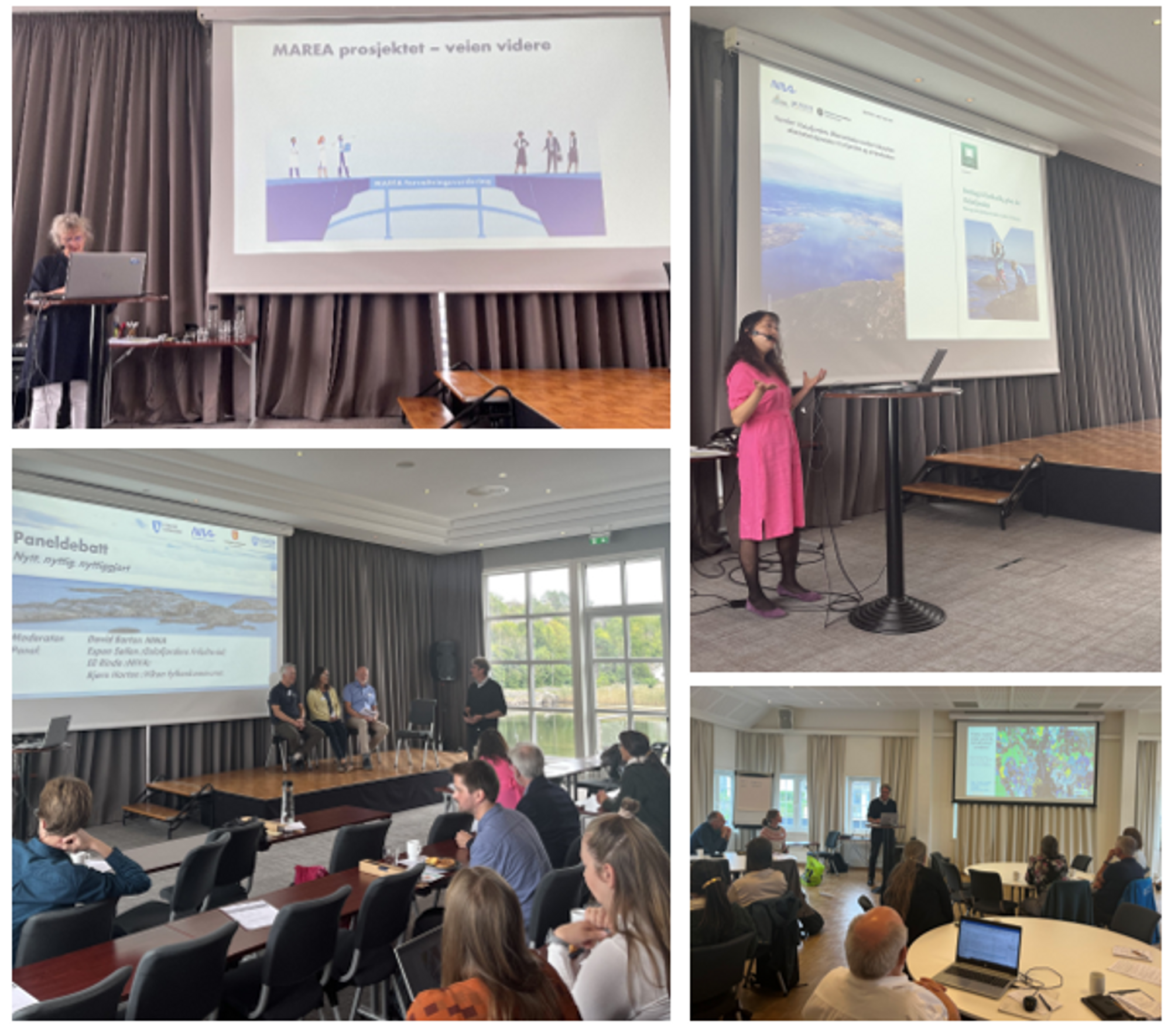
MAREA has conducted its first planner’s jury
To further enhance the close dialogue between research and governance actors, the MAREA project held its first planner’s jury' the following day. The planner’s jury consisted of a panel of representatives from county municipalities and the Oslofjorden Friluftsråd (Outdoor Recreation Council). Researchers were asked to present their research in a user-friendly manner based on some guiding questions that had been sent out in advance:
- What is the purpose of the research? (Information, decision support, policy formulation)?
- What element of natural accounting does the research contribute to?
- Where in the decision-making process is this useful?
The presentations were followed by a discussion with the jury, during which jury members asked additional questions and reflected on the applicability of the research. The purpose of this format is to integrate and tailor to the needs of decision-maker so that the potential for the use of ecosystem assessment for decision support and other purposes can be increased. It ensures that both parties benefit from the research: MAREA can discuss its research to better align it with the needs of decision-makers, and decision makers gain a better understanding of the research. This increases the potential for the use of ecosystem assessments in decision-making processes and other purposes.
The evaluation of the process showed that such an exercise is considered very useful for both parties, and the notes from the meeting contribute to the project's follow-up going forward.
MAREA project at the 6th Symposium on the Oceans In National Income Accounts
Wenting Chen presented the MAREA project and ongoing results at the 6th Symposium on the Oceans In National Income Accounts in Busan, South Korea on 26-27 April 2023.
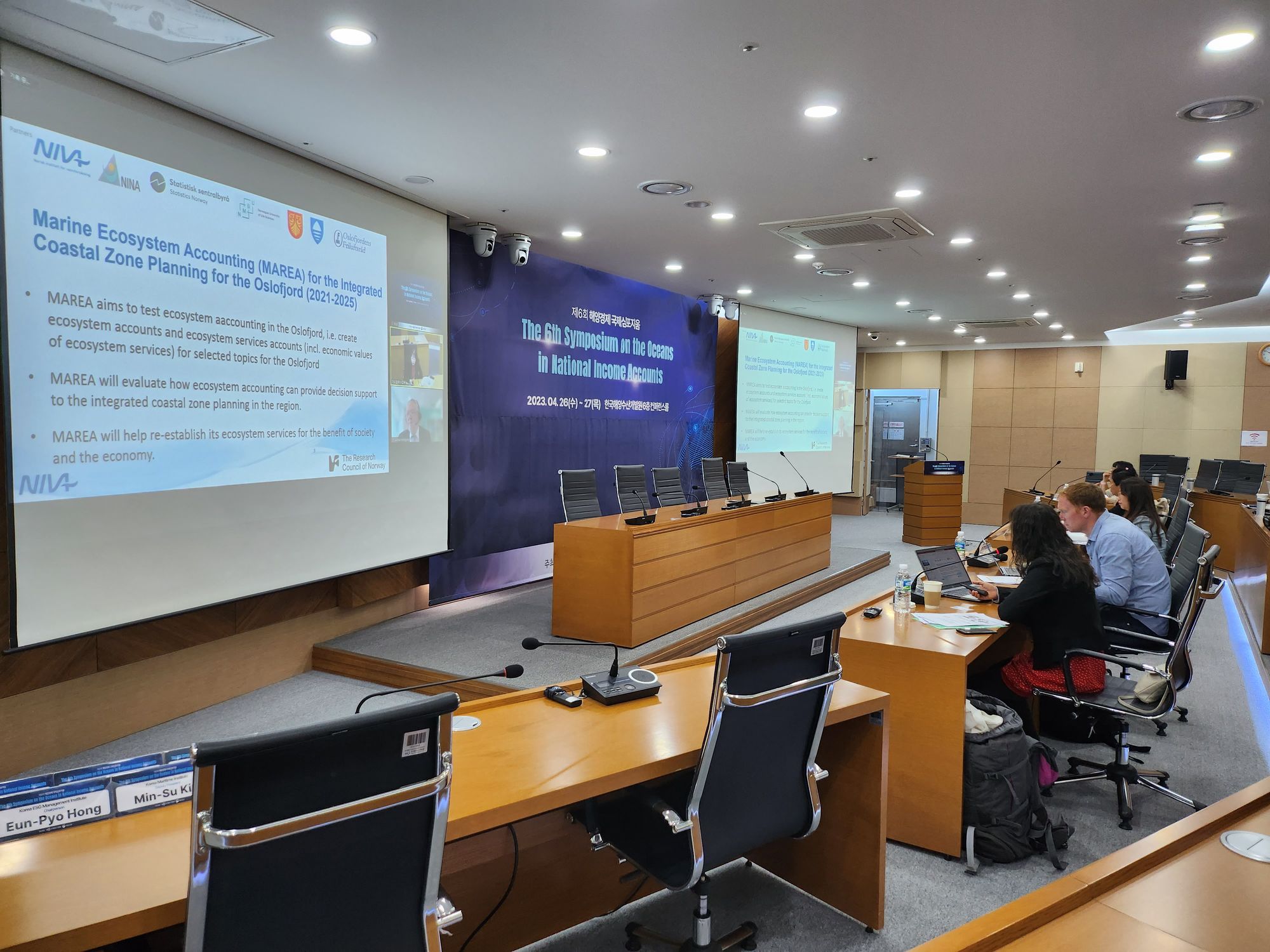
Webinar on ecosystem accounting for the Oslofjord
Can the downscaling coastal-marine thematic accounts (UN SEEA EA, Ch. 13) provide decision support for integrated planning in the Oslofjord?
The streaming of the webinar is available her. (Norwegian only)
MAREA Advisory Board Meeting
A MAREA Advisory Board Meeting was held on 2nd June 2022. The project team including both academic and non- academic partners attended the meeting. The international experts from National University of Ireland Galway, UNEP WCMC, the Finnish Environmental Agency and the University of Alberta shared their experience on coastal marine ecosystem accounting and coastal governance.
